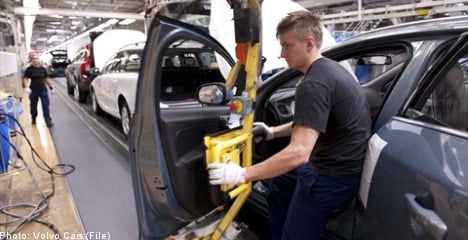“The low volumes in the Uddevalla plant do not justify continued production,” Stefan Jacoby, Chief Executive of Volvo Car Corporation said in a statement.
Volvo has been building cars in Uddevalla since 1989, although operations have been carried out in a joint venture with its majority shareholder Pininfarina S.p.a. since 2005.
But the plant in Uddevalla has only been producing at 65 percent of its capacity, according to the company. In 2010 the factory manufactured 10,000 cars.
Production will cease at some point in 2013, but the exact date has yet to be decided.
”We don’t know exactly when that will be yet,” said Olle Axelson, head of informations at Volvo, to news agency TT.
According to Axelson, negotiations with the unions will be commencing immediately.
”All the employees will be offered continued employment within Volvo Cars,” he said to TT.
The Uddevalla plant employed some 600 workers. The option they will have is to move or commute to the company’s other factories in Gothenburg or Skövde, Floby or Olofström – all locations at a significant distance from Uddevalla.
”Exactly how this will work is too early to say. We have one and a half years left, so there is time to consider different options,” Axelson told TT.
Jacoby said in the statement that he hoped that as many as possible of the Uddevalla workers would choose to take up other employment within the company.
“We will now look into when a next generation Volvo convertible can be on the market and where it should be manufactured,” said Jacoby.
Volvo Car Corporation is owned by Chinese Hegelian Geely Holding Group Co.



 Please whitelist us to continue reading.
Please whitelist us to continue reading.
Member comments